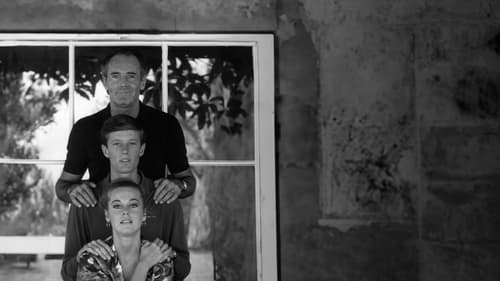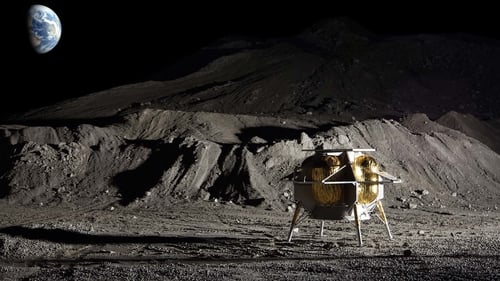Charles-Antoine de Rouvre

Director

Director
From the working class suburbs of Madrid, Penélope Cruz triumphed at the age of 18 in Bigas Luna's "Jamón, jamón", as a feisty ingenue, leaving Javier Bardem panting with desire - she married him some fifteen years later after a flurry of American romances. Wise or well advised, Penélope Cruz then avoided being pigeonholed as a young bimbo by accepting the role of a sympathetic young woman in Fernando Trueba's "La Belle Epoque" (1992). The success of the Oscar-nominated film led her to Hollywood, where she landed supporting roles and worked hard on her English, while continuing to shoot in Spain. This was a time when the studios were increasingly sensitive to the expectations of the Latino public, which had become the country's largest minority, and to the revival of Spanish cinema.

Director

Narrator (voice)
1962. A crystalline voice becomes a planetary tube. A Belgian nun jostles Elvis and the Beatles on the world charts. Her name: Sister Smile. A popstar with the trajectory of a comet who understands her success no more than the double meaning of her words… The harder the fall will be. Even God does not protect sharks' appetites or pretenses of success! Who killed the little voice of God? Here is the tragic story of an innocent voice, of an extraordinary fate, almost of a curse ...

Camera Operator
1962. A crystalline voice becomes a planetary tube. A Belgian nun jostles Elvis and the Beatles on the world charts. Her name: Sister Smile. A popstar with the trajectory of a comet who understands her success no more than the double meaning of her words… The harder the fall will be. Even God does not protect sharks' appetites or pretenses of success! Who killed the little voice of God? Here is the tragic story of an innocent voice, of an extraordinary fate, almost of a curse ...

Writer
1962. A crystalline voice becomes a planetary tube. A Belgian nun jostles Elvis and the Beatles on the world charts. Her name: Sister Smile. A popstar with the trajectory of a comet who understands her success no more than the double meaning of her words… The harder the fall will be. Even God does not protect sharks' appetites or pretenses of success! Who killed the little voice of God? Here is the tragic story of an innocent voice, of an extraordinary fate, almost of a curse ...

Director
1962. A crystalline voice becomes a planetary tube. A Belgian nun jostles Elvis and the Beatles on the world charts. Her name: Sister Smile. A popstar with the trajectory of a comet who understands her success no more than the double meaning of her words… The harder the fall will be. Even God does not protect sharks' appetites or pretenses of success! Who killed the little voice of God? Here is the tragic story of an innocent voice, of an extraordinary fate, almost of a curse ...

Self - Narrator (voice)
Meryl Streep is one of the most versatile and successful actresses of all time and is still considered a superstar after 50 years of career. She fascinates filmmakers and audiences alike with her broad range of expression.

Writer
Meryl Streep is one of the most versatile and successful actresses of all time and is still considered a superstar after 50 years of career. She fascinates filmmakers and audiences alike with her broad range of expression.

Director
Meryl Streep is one of the most versatile and successful actresses of all time and is still considered a superstar after 50 years of career. She fascinates filmmakers and audiences alike with her broad range of expression.

Co-Director
This documentary tells the story of the Ustashe. These Croatians nationalists had been involved in several murderous attacks before WWII until they rose to power in 1941, supported by the Nazis. Then, they led a campaign of ethnic cleansing in the country, while participating actively in the Final Solution. However, their regime is one of the lesser known ones of WWII and their story has almost been forgotten. Why has it been so thoroughly erased?

Director
16 de julio de 1969. En Cabo Cañaveral, el Apolo 11 impulsado por un cohete Saturno V espera su momento de despegue. A bordo, tres hombres, Neil Armstrong, Buzz Aldrin y Michael Collins van a realizar una misión que cambiará para siempre el curso de la humanidad: el primer paso del hombre a la Luna. 50 años después, con “Back to the Moon”, se revive la hazaña como si estuvieras allí en esta intensa aventura.

Speaker

Writer

Robert Fortune
En el siglo XIX, China mantuvo el monopolio del té, que era muy querido y de moda en Occidente, y el Imperio Británico intercambió amapolas, producidas en sus colonias indias y transformadas en opio, por té chino. Inundada por las drogas, China se vio obligada a abrir su mercado, y los británicos consolidaron su dominio comercial. En 1839, el Imperio Medio introdujo la prohibición. Se declaró la guerra del opio ... Gran Bretaña surgió como el ganador, pero se hizo caso a la advertencia: ya no podía depender del té chino. La única alternativa posible era producir su propio té. La East India Company, por lo tanto, le confió a un hombre la búsqueda de los secretos de la bebida preciosa. Su misión era desarrollar las primeras plantaciones en las colonias indias de Gran Bretaña.

Scenario Writer
En el siglo XIX, China mantuvo el monopolio del té, que era muy querido y de moda en Occidente, y el Imperio Británico intercambió amapolas, producidas en sus colonias indias y transformadas en opio, por té chino. Inundada por las drogas, China se vio obligada a abrir su mercado, y los británicos consolidaron su dominio comercial. En 1839, el Imperio Medio introdujo la prohibición. Se declaró la guerra del opio ... Gran Bretaña surgió como el ganador, pero se hizo caso a la advertencia: ya no podía depender del té chino. La única alternativa posible era producir su propio té. La East India Company, por lo tanto, le confió a un hombre la búsqueda de los secretos de la bebida preciosa. Su misión era desarrollar las primeras plantaciones en las colonias indias de Gran Bretaña.

Director
En el siglo XIX, China mantuvo el monopolio del té, que era muy querido y de moda en Occidente, y el Imperio Británico intercambió amapolas, producidas en sus colonias indias y transformadas en opio, por té chino. Inundada por las drogas, China se vio obligada a abrir su mercado, y los británicos consolidaron su dominio comercial. En 1839, el Imperio Medio introdujo la prohibición. Se declaró la guerra del opio ... Gran Bretaña surgió como el ganador, pero se hizo caso a la advertencia: ya no podía depender del té chino. La única alternativa posible era producir su propio té. La East India Company, por lo tanto, le confió a un hombre la búsqueda de los secretos de la bebida preciosa. Su misión era desarrollar las primeras plantaciones en las colonias indias de Gran Bretaña.

Director

Director












